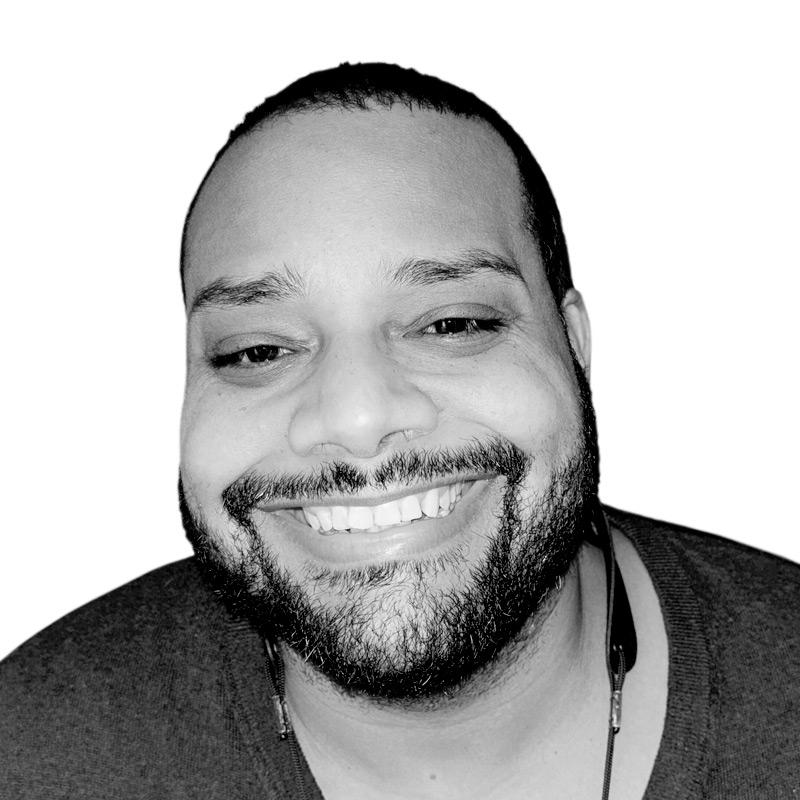Sampha Is on His Own
For years, the British singer-songwriter has been one of pop’s secret weapons — just ask Kanye West, Solange, or Drake what he can bring to a song. But now, with his debut album, ‘Process,’ he’s making a solo move.It’s January, and the singer Sampha is in town from London on a seductively warm and sunny Thursday in New York. In 24 hours, he’ll be on set as the musical guest for a taping of The Tonight Show Starring Jimmy Fallon. There, Sampha will perform "(No One Knows Me) Like the Piano," which his record label Young Turks premiered the day before. This will be Sampha’s third time performing for a studio audience at Rockefeller Plaza — once with Drake, and then recently with Solange — and his first time performing solo. "I don’t know how I’m going to feel playing the song in a venue like that," he says. A late-night TV comedy stage is a strange place to debut such a heady song about loss.
Sampha wrote "Piano," the somber third single from his debut album, Process, in two distinct phases of his life: He started the song after his mother’s stomach cancer had returned in 2014, and he finished it a few months after she died in September 2015. Sampha, 28 — the youngest of his mother’s five boys — lost his mom just as he’d begun spending so many of his days abroad, working, touring, and cultivating an international fan base for his music. In mourning, he retreated to a seaside compound in Norway. For 10 days, he produced music alone — a departure from how he had typically written songs at the titular piano in his mother’s home.
"At my mom’s house," he says, "friends would just be in my room for days." But in Norway, he says, he lost that vibe. "I don’t have those pleasures anymore."

When you name your album Process, every nosy so-and-so is bound to ask you about the habits, practices, and philosophy that go into your music. Sampha stresses that his songwriting is conventional and his observations mundane: "I’m just writing stories," he says, citing nature and his own, unprocessed memories as inspirations. He wrote "Kora Sings," an album highlight, during a jam session with his kora player in a West London studio. It’s another song about the insuperable distance between him and his mom, though "Kora Sings" is groovier and a bit more figurative than "No One Knows Me." "The heat is making light of a heavy year," he sings, sketching a desert under a high sun. Sampha says that while writing the song he thought of the sun, and then his late mother, Binty, and late father, Joe, who died from lung cancer in 1998, touring the Sahara on vacation from their native Sierra Leone. But with rare exception, he’s generally loath to decode his songs and thus dispel their mystique.
What’s impossible to demystify is the stunning effect of Sampha’s voice, a lone pup’s howl that alerts fellow travelers to come find him instead of warning them off. You may hear Sampha sing and think immediately of Tracy Chapman, whom he did indeed love (along with Stevie Wonder and Zero 7) growing up, and whose vocals do merit some comparison. But Chapman sings narrative blues, where Sampha’s songs are more oblique and diarylike. His music obliterates social noise the same way outer space obliterates air, the result being a measure of spiritual isolation that makes way for meditation: sometimes physically still, sometimes imploring you to dance. There’s very little wit to Sampha’s music, only harrowing imagery, sobering insights, and love-drunk falsetto. Before launching his solo career in earnest, Sampha made a name for himself by haunting other artists’ songs with sometimes-light, sometimes-powerful touches of his voice; he’s made music with Drake, Beyoncé, Solange, Frank Ocean, and Kanye West, among others — musicians who’ve wielded Sampha as a force for longing and sadness.
Given his late mother’s years-long battle with cancer, it’s understandable that melancholia would suffuse so much of Sampha’s music. In person, however, he is shy at times but never dour. He smiles a lot and clams up only when he pauses to consider his responses carefully — not as a matter of any programmed hypercaution, just thoughtfulness. Sampha is thinking.
In October, Sampha played two shows in Brooklyn that sold out within three minutes, according to the vendors. At the second of these concerts, hosted at the Music Hall of Williamsburg, Sampha performed many of the songs from Process, including "Timmy’s Prayer," "Blood on Me," and "Plastic 100°C," which had already been released. Sampha’s longtime girlfriend, Jojo, who often travels with him at concerts and interviews, hung backstage, away from the band for much of the evening. She was friendly, talkative, and about as naturally curious about strangers as I am professionally curious as a reporter on assignment, but there she worried she was in the way.
While Sampha and the band were in the Music Hall greenroom listening to a playlist that somehow includes Cortex as well as Meek Mill, she peeks into the other backstage rooms to see what the rest of us hangers-on are up to. When the band takes the stage after the cellist and singer Kelsey Lu’s set, Jojo watches the show from a table in the balcony, a speck in the crowd of her boyfriend’s fans. Sampha appears in a buttoned flannel shirt, black jeans, and a pair of sneakers that one might wear to mow the lawn. As he stands at the keyboard and sings, his fans fill the venue with the light and silence of a smartphone vigil. If he’d lost the drums, we’d have been singing kumbaya.

Sampha has been with us for a while now. You can get a good look at him as far back as 2011, alongside Jessie Ware in the music video for their single "Valentine." The video features Sampha sporting a low fade, a style that seems so unthinkably young now that he has spent the past few years growing his hair out as spikeball dreads. He quickly became a favorite collaborator of the masked electronic music producer SBTRKT, who featured him on early tracks such as "Never Never," "Trials of the Past," and "Hold On."
SBTRKT brought Drake out as a surprise guest at a 2011 concert in Toronto, which is where Drake and Sampha first met. Two years later, the two would premiere Drake’s sixth single from Nothing Was the Same, "Too Much," featuring Sampha, on Late Night With Jimmy Fallon. The September 2013 performance was Sampha’s first major appearance on U.S. television. After that, we quickly came to know Sampha as a collaborator. He would spend the next few years shaking that label, carving out time to commence working on Process, even as he continued to work with other, larger artists across a variety of musical styles.
Kanye and Solange are two dissimilar musicians who’ve deployed Sampha to great effect — Solange as a transcendent harmony for the chorus of "Don’t Touch My Hair," Kanye as an angelic benediction of his ranting on "Saint Pablo." (Sampha says that Kanye in turn helped him write his album’s first single, "Timmy’s Prayer.") But these artists are both tapping Sampha for a quality that you might not otherwise find in their own music: a virgin purity that Sampha has sustained even in the face of blackest grief, and even as he splits himself across other artists’ songs.
Sampha has made beautiful music with some of today’s biggest stars of the Hot 100. But when I ask him to map his musical family — who he develops concepts and phrases with, and who he enjoys working with most — the singer immediately thinks back to friendships formed in his teens. First, he mentions his best friend Hassan, who put teen Sampha on to hip-hop by way of Dr. Dre and the Notorious B.I.G. He also big-ups the producer Lil Silva, whom Sampha knows as TJ. As much as "Piano" is a tribute to his late mother, Sampha says the song also preserves his memory of his old house and friends, even as those friends now grow into their own success. "It’s like how you might see your secondary-school friends," Sampha says. "They’re never quite adult in your mind, you know? And you’ve grown up, too, but no one knows you quite like that person." Sampha offers no pretense of personal accessibility outside of his music. He describes even the most rudimentary steps of brand management and professional integration with his personal life — his Instagram account, for instance — as an exercise in radical vulnerability. It is difficult to imagine Sampha basking in massive attention, even as he’s here in New York making the rounds to promote his long-awaited solo debut.
Knowing he’s already played Late Night and Saturday Night Live in the past, I ask him who he’ll be playing with on the Tonight Show stage.
"It’s just me," he answers.
For Sampha, the performance is a new chapter.

When musical guests play Jimmy Fallon’s stage at Rockefeller Plaza — and most other late-night TV platforms — they typically perform against rafters, spotlights, a drum set, and dancers, perhaps standing in fog, a setup that not only reveals but emphasizes the studio’s industrial bearings. This was the setup when Solange brought Sampha out to perform "Don’t Touch My Hair" with her on SNL in November, but it’s not his ideal element.
Sure enough, he takes to the Tonight Show stage alone, just him and his piano cast in silhouette, set against a burnt-orange backdrop that, together with the silhouette, resembles dusk. He plays "No One Knows Me," and suddenly the studio feels quite like dusk, too. A room that was minutes earlier filled with confetti and balloons for a comedic sketch is quickly silenced by a simple piano melody and the force of Sampha’s voice. Given the venue, "No One Knows Me" is a remarkable song selection not just because of how somber it is, but also because, as a pure piano ballad, it’s not quite representative of Sampha’s genre sensibilities on Process or in general. But it is the most straightforward display of who Sampha is and how he’s feeling these days. And it is the simplest proof that you can’t adequately describe this guy as a legitimate star’s collaborator any longer. He’s a verified peer.
Since we spend so much time discussing his famous friends before his Fallon performance, I ask Sampha how much thought, if any, he’s put toward crafting any sort of persona for himself. Sampha says he’s aware that many fans and critics figure him as unknowable in some sense, though he isn’t sure how to put it exactly. I call him elusive. He laughs, "That’s terrible." But he concedes that he hasn’t yet come to grips with the distinction between private life and public persona.
"I just want to put the music out," he says. "In terms of people connecting with me, hopefully it comes across that way." And how could it not? So many different stars have reflected Sampha’s own, peculiar brilliance. "It’s just me and the burning sun," he sings. The light you see is his, and his alone.


